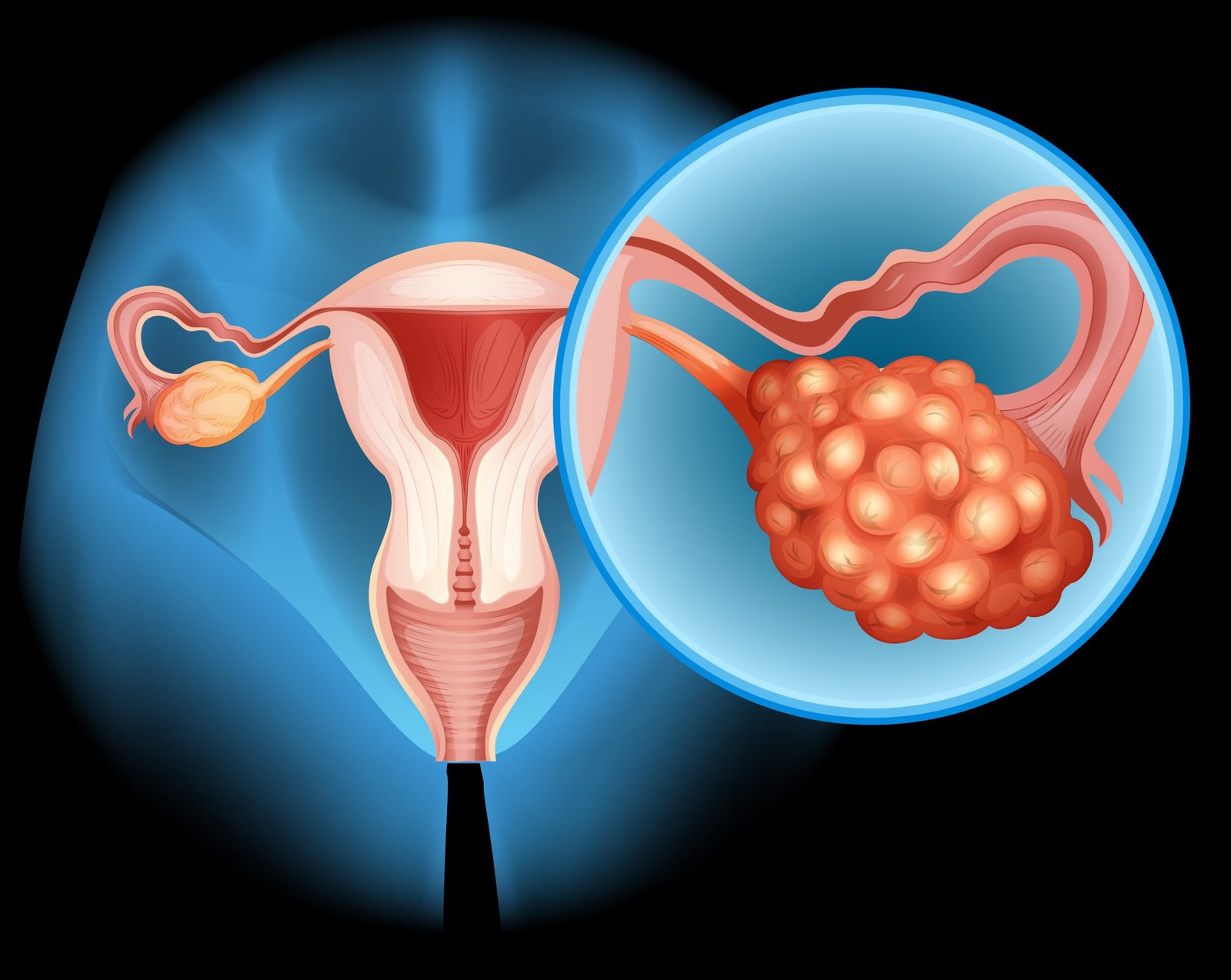PCOS and Diet
Consulting with us is important for patients with Polycystic Ovary Syndrome (PCOS) for several reasons, as supported by research and clinical guidelines. PCOS is a complex endocrine disorder that can lead to a range of health issues, including insulin resistance, obesity, irregular menstrual cycles, and infertility. Dietary and lifestyle modifications are often recommended as part of the management of PCOS to help improve symptoms and reduce the risk of associated health complications.
Customized Dietary Plans: PCOS is a heterogeneous condition, and its symptoms and severity can vary from person to person. We can assess an individual’s specific needs, preferences, and medical history to create a personalized dietary plan that aligns with their goals and addresses their unique PCOS-related concerns.
Weight Management: Many women with PCOS are overweight or obese, which can exacerbate symptoms and increase the risk of complications. We can provide guidance on calorie control, portion sizes, and strategies for sustainable weight loss. They can also help individuals choose a balanced and nutrient-dense diet that supports weight management.
Blood Sugar Control: Insulin resistance is a common feature of PCOS. We can design a meal plan that helps regulate blood sugar levels and improve insulin sensitivity. This often involves managing carbohydrate intake, choosing low-glycemic index foods, and distributing meals and snacks throughout the day to prevent blood sugar spikes.
Hormonal Balance: Diet can influence hormonal imbalances in PCOS. We can recommend foods and nutrients that may help regulate hormonal fluctuations, such as omega-3 fatty acids and antioxidants. They can also advise on the consumption of foods that may exacerbate hormonal imbalances, like excessive sugar and refined carbohydrates.
Nutrient Optimization: PCOS can sometimes lead to nutrient deficiencies, such as vitamin D, calcium, and magnesium. We assess your nutritional status and recommend dietary changes or supplements, if necessary, to address these deficiencies. Proper nutrition can have a positive impact on overall health and fertility.
Lifestyle Modification: In addition to diet, lifestyle factors like physical activity and stress management play a crucial role in managing PCOS. We can provide guidance on incorporating regular exercise and stress-reduction techniques into a PCOS-friendly lifestyle.
Long-term Health and Fertility: Effective dietary management of PCOS can reduce the risk of long-term health complications, such as type 2 diabetes, cardiovascular disease, and infertility. Working with a dietitian can help individuals with PCOS make sustainable lifestyle changes that promote their overall health and reproductive well-being.
In summary, consulting with us is important for patients with PCOS because it allows for tailored dietary and lifestyle guidance that can help manage symptoms, improve metabolic health, and reduce the risk of associated long-term health complications. These interventions are supported by scientific research and are often recommended as part of the comprehensive management of PCOS.
References:
Moran, L. J., Hutchison, S. K., Norman, R. J., & Teede, H. J. (2011). Lifestyle changes in women with polycystic ovary syndrome. Cochrane Database of Systematic Reviews, 2011(2), CD007506.
Pal, L., & Santoro, N. (2006). Management of Polycystic Ovary Syndrome (PCOS). In L. C. Giudice & K. Dunaif (Eds.), Polycystic Ovary Syndrome (pp. 255-268). Springer.
Sirmans, S. M., & Pate, K. A. (2014). Epidemiology, diagnosis, and management of polycystic ovary syndrome. Clinical Epidemiology, 6, 1-13.
Lim, S. S., Hutchison, S. K., Van Ryswyk, E., Norman, R. J., & Teede, H. J. (2012). Lifestyle changes in women with polycystic ovary syndrome. Cochrane Database of Systematic Reviews, 2012(7), CD007506.
Teede, H. J., Misso, M. L., Deeks, A. A., Moran, L. J., Stuckey, B. G., Wong, J. L., … & Norman, R. J. (2011). Assessment and management of polycystic ovary syndrome: summary of an evidence-based guideline. The Medical Journal of Australia, 195(6), S65-S112.


